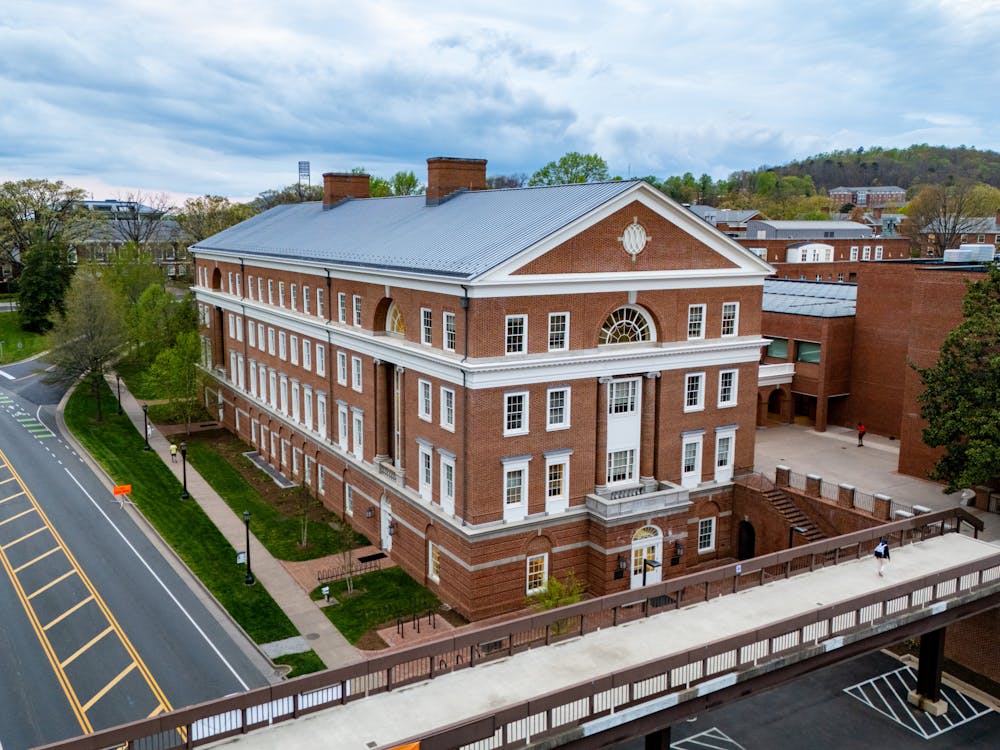Though a legal battle has surrounded the program for nearly three years, the Google Books Library Project continues to digitize hundreds of thousands of books from the University's library system. The partnership between Google and the University, which began in November 2006, gives the company access to more than 5.1 million of the University's library books. All of these works will be considered for digitization and inclusion in the ever-growing online database Google Book Search.
The Google Books Library Project, however, is a lightning rod for debate among those in the publishing and academic world. Though some praise Google for what they believe to be its further democratization of information discovery, others criticize what they see as a gross violation of copyright law. In the midst of this legal conflict are institutions of higher education, such as the University, which have allowed the company to digitize their collections.
Saving time and money
When Google approached the University to be a part of its Library Project two years ago, the University had already been digitizing works on its own for more than a decade. Since 1992, the University has made thousands of public domain texts and documents accessible online via its Etext Center. In some cases, digital copies of out-of-print works were provided to interested faculty for their scholarship and use in the classroom. The infrastructure was already in place for the kind of work Google is now doing.
The work, however, was both labor-intensive and very expensive, according to Associate University Librarian Martha Sites. It would cost the University between $250 and $300 per volume to digitize a book using its own resources, she said.
Since Google now handles the digitization of most of the University's collections, it allows the University to direct its funding and energy to the preservation of its more unique holdings. According to the cooperative agreement between Google and the University, Google covers the full cost of the digitization process, with the University only paying for the physical movement of books to the digitization site. In exchange for providing Google access to its collections, the University receives a full digital copy of every work made as part of the project.
"One of the things that the Google project allows us to do is to not only reallocate those human resources to digitize public domain and special collections materials but to concentrate on preservation," said University Librarian Karin Wittenborg, adding that the University's special collections are the main focus of its digitization efforts. "Google has just vaulted us into a new arena."
A reckless decision?
Some critics of the Google Book Library Project argue that participating libraries run the risk of becoming obsolete by their involvement in such a massive project. For some, the talk of all the project's goodwill is just that.
"When the Google Book Search scanning program started, it was greeted with lots of hyperbole," said Media Studies Prof. Siva Vaidhyanathan, a critic of the project. "Google was supposed to be freeing all of this bound and dusty knowledge and bringing it to all of the under-served people of the world. It doesn't take long to see that it doesn't do that."
Vaidhyanathan maintained that Google Book Search does not make the best use of the digital copies provided by participating libraries and often leaves users to sort through pages of erroneous search results. During public talks about the project, Vaidhyanathan said he used to point out that a search for "it was the best of times" would often reveal pages of business manuals before uncovering Charles Dickens' "A Tale of Two Cities."
"Google Book Search is an absurd way to search for information," Vaidhyanathan said. "When you search for things you already happen to know about and know the best five books about a subject, you almost never find them on Google Book Search."
Additionally, Vaidhyanathan identified other quality control issues with Google Book Search. Though the search allows users to download and view the full digital text of a work considered in the public domain, a number of public domain works are still not available online. He pointed out that even the code of federal regulations outlining U.S. copyright law, a document published by the government and considered public, is only available in "snippet view" via the Google Book Search. "Snippet view" shows the user a small amount of text before and after his specific search phrase. Publishers who work with Google can allow users to view a longer preview of their books.
According to Vaidhyanathan, participating university libraries should have formed a cooperative among themselves to ensure this database of digitized books would be as accessible and reliable as possible. He argued that such a database should not be owned by a single corporation, but rather that these public institutions should have taken ownership of this project from the beginning.
"Google comes in as a quick fix," Vaidhyanathan said. "I see this as a mistake. Libraries were reckless in these deals. There isn't a hurry to get this done. They should have been unified and deliberative."
Responding to critics
Though the University's partnership with Google is helping the University save a significant amount of money, some from the library system also say the partnership is generally in the University's best interest for other reasons.
"I totally believe in public-private partnerships," Wittenborg said. "When you look at the funding for higher education over the past 20 years, it's not a rosy picture. We protect our interests, but where there are resources that can be levered to improve something we can offer, that's much more important. Google has the advantage of being a single entity."
It would have been extremely difficult for these participating university libraries to coordinate their digitization efforts if it were not for a company like Google, according to Wittenborg. Even if these libraries had worked directly together without a third-party entity, Wittenborg said the process would have been much slower. While the University does work with other partnerships offering digital works, she said, nothing equates to its involvement with the Google Book Library Project.
For others at the University, involvement in the project means much more than greater accessibility to resources on Grounds; it represents a substantial change in the way in which society consumes literature.
"The typical life of a book is nasty, brutish and short," said Law Prof. Christopher Sprigman, who teaches courses concerning intellectual property and copyright. "The book is published, but within a few months it's gone. Think of our culture as an iceberg. What this technology could do is surface all of that stuff that is below the waves. It could put us back in touch with the accumulated learning of hundreds of years of culture."
Sprigman argued that while as a University law professor he has access to millions of books, he has something far inferior to the service potentially offered by a completed Google Book Library Project. In the end, he said the benefit of such a project outweighs whatever costs critics might identify.
"A developing Google Book Project would make the kind of resources available to me, available to lots and lots more people, which I think would be a good net gain for society," Sprigman said. "The promise is that it democratizes access to information and learning. It takes all of these books that have disappeared without a trace, and reappears them."
Fighting about fair use
No matter the quality control issues some have identified with Google Book Search, a point of dismay for some critics is Google's claim that it is well within its right to digitally reproduce copyrighted works without permission. Though Google does not allow users to browse complete copyrighted works, only permitting them cursory "snippet views," it does copy the works for its searchable database of published text.
"It was very important for people early on to declare Google was doing a major public service, because the only way to justify this massive copyright infringement was to declare that it was in the public interest," Vaidhyanathan said. "Google is being reckless and irresponsible about copyright."
Vaidhyanathan argued that Google has a flimsy justification under copyright law for its actions. Both Vaidhyanathan and Sprigman agreed the company has used the fair use provision of U.S. copyright law to justify making blanket copies of works under copyright. Some critics disagree and others have filed lawsuits as a result.
"Fair use is supposed to be a case-by-case rule," Vaidhyanathan said. "Before you know the argument, how can you say the snippet is fair use? Fair use is a delicate tool. It was not designed for super-rich organizations to scan the works of other super-rich organizations."
While some Google apologists agree that the company is making the fair use argument carry a significant amount of weight, they still think what the company is doing is well within its right. These supporters accuse publishers suing Google of simply wanting to make more money.
"Our economy is based on people coming up with ideas that expand social welfare and then getting rewarded for that," Sprigman said. "That is what Google is doing. The way they are doing this doesn't destroy the market for books. If anything, it improves the market for books. It's a win-win. In the face of this, the [publishing] companies want more. They would rather destroy this, it appears, than not control it."
A work in progress
For all of the Google Book Library Project's fans and critics, the resulting Book Search is still very much a work in progress. End users, from university librarians and professors to authors and publishers, are working with Google to help streamline its massive library project.
"The details will get worked out, and these things will get improved over time," Sites said. "We have found Google to be tremendously responsive and clearly interested in working with us and institutions of higher education."
Even Vaidhyanathan, who is currently writing a critique of the company titled "The Googlization of Everything," admittedly has Google set as the home page on his office computer. Despite his criticism of the project, he still called himself a fan of Google.
Though books in the University Library System continue to be digitized daily, Wittenborg assured readers that "books will be with us forever"




